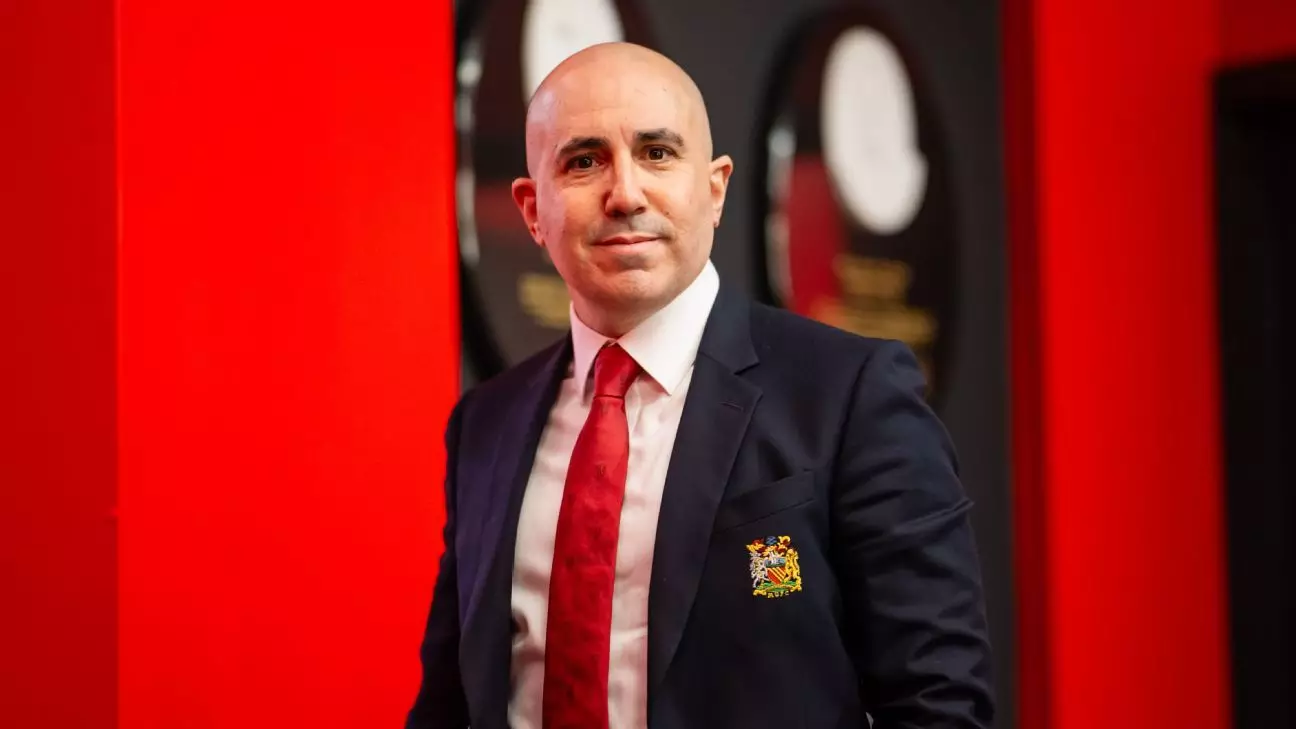In a decisive move to restore Manchester United’s legacy as a titan of world football, the club has appointed Ruben Amorim as the new head coach. This transition comes amid a challenging phase for the team, currently struggling in the lower echelons of the Premier League. Club CEO Omar Berrada has made it clear that the objective is not merely to stabilize the current situation but to compete fiercely for both domestic and European honors. Amorim’s initial test will be a Europa League clash against Bodo/Glimt, set to take place at Old Trafford, an opportunity ripe for setting the tone for his tenure.
Inheriting a squad that has yet to find its rhythm, Amorim is tasked with a herculean endeavor. The reality of Manchester United’s position in the league reflects not just a dip in form but also a crisis of confidence that has permeated the squad. Under previous management, players appeared disjointed and unmotivated. Amorim’s coaching philosophy will need to weave coherence and discipline back into the team, qualities that he cultivated during his successful spell at Sporting CP. Given his age of 39, Amorim carries the dual burden of instilling belief among seasoned players while simultaneously engaging younger talents to rediscover their potential.
Financial Constraints and Strategic Pivot
While the excitement surrounding Amorim’s appointment is palpable, the backdrop of financial constraints looms large. Sources reveal that he will have to navigate a reduced transfer budget as the club aims to align itself with the Premier League’s Profit and Sustainability Rules. This financial prudence is particularly noteworthy following a series of cost-cutting measures undertaken by the club since Sir Jim Ratcliffe took a minority stake earlier this year. These moves, including redundancy programs, reflect a broader strategy to stabilize the financial health of Manchester United without compromising its ambition.
The financial report released by the club on Tuesday underscores this strategic shift. An adjusted net loss of £349,000, a substantial improvement from the previous year, coupled with continued projections for revenue growth, illustrates a path forward. This fiscal responsibility is vital as the club balances the pursuit of on-field success with long-term sustainability. In a competitive environment where finances dictate player acquisitions and market position, Amorim will need not only tactical finesse but also innovative ways to maximize the resources at his disposal.
As Amorim steps into his new role, the collaboration among management, players, and the coaching staff will be critical. Berrada’s commitment to ensuring both men’s and women’s teams are competitive reflects a holistic approach to the club’s overall performance. The dual focus on immediate results and sustained organizational development may well determine the club’s trajectory over the upcoming seasons.
The appointment of Ruben Amorim signals an imperative shift for Manchester United—ambition coupled with financial responsibility as it seeks to re-establish its dominance in football. How well Amorim adapts to his new environment and whether he can invigorate a fractured squad will ultimately define his legacy at one of the world’s most iconic football clubs.

